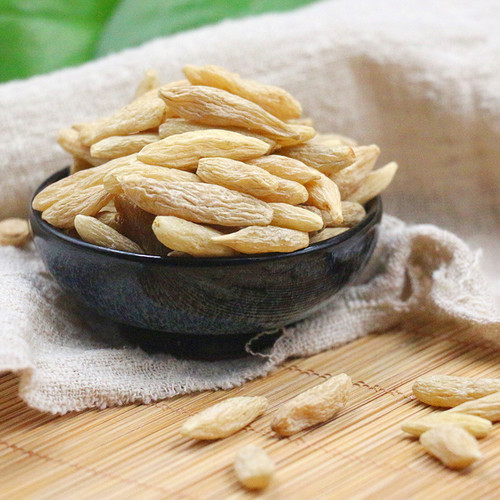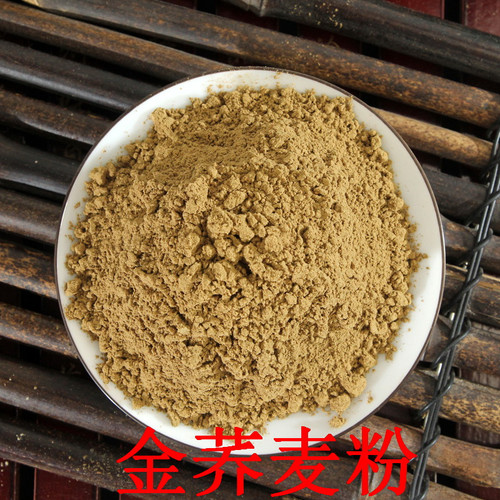Product Overview
Parts used: Dried root tuber
TCM category: Tonic herbs for Yin Deficiency
TCM nature: Cool
TCM taste(s): BitterSweet
Meridian affinity: Stomach Heart Lung
Scientific name: Ophiopogon japonicus
Other names: Mai Men Dong, Mondograss, Fountainplant, Monkeygrass, Japanese Turf Lily
Use of dwarf lilyturf roots (Mai Dong) in TCM
Please note that you should never self-prescribe TCM ingredients. A TCM ingredient is almost never eaten on its own but as part of a formula containing several ingredients that act together. Please consult a professional TCM practitionner, they will be best able to guide you.
Preparation: Remove impurities, wash, soak in water, cut into sections and dry.
Dosage: 6 - 12 grams
Main actions according to TCM*: Replenishes Yin Essence and promotes secretions. Lubricates and nourishes the Stomach. Soothes the Lung. Nourishes the Heart.
Primary conditions or symptoms for which dwarf lilyturf roots may be prescribed by TCM doctors*: Dry cough Insomnia Dry mouth Constipation Diphtheria
Contraindications*: Not for those with weak Spleen and Stomach with Coldness and diarrhea.
Common TCM formulas in which dwarf lilyturf roots are used*:
For Lung and Kidney Yin Deficiency associated with chronic bronchitis, asthma or chronic pharyngitis combine dwarf lilyturf roots with lily bulbs (Bai He), prepared rehmannia (Shu Di huang), unprepared rehmannia (Di Huang), white peony roots (Bai Shao), dong quai (Dang Gui), ningpo figwort roots (Xuan Shen), platycodon roots (Jie Geng), fritillary bulbs (Chuan Bei Mu) and liquorice (Gan Cao).
For feverish diseases with symptoms of thirst and irritability combine dwarf lilyturf roots with common reed rhizomes (Lu Gen), gypsum (Shi Gao) and snake gourds (Gua Lou).
For for symptoms of exhaustion and fatigue with shortness of breath, excessive perspiration and thirst combine dwarf lilyturf roots with schisandra berries (Wu Wei Zi) and ginseng (Ren Shen).
For coronary heart disease, rheumatic heart disease, myocarditis, arrhythmia, hyperthyroidism or neurasthenia combine dwarf lilyturf roots with jujube dates (Da Zao), ginseng (Ren Shen), liquorice (Gan Cao), unprepared rehmannia (Di Huang), hemp seeds (Huo Ma Ren), cinnamon twigs (Gui Zhi) and fresh ginger (Sheng Jiang).
For lubricating the Lungs and generating Fluid combine dwarf lilyturf roots with glehnia roots (Bei Sha Shen).
For thirst and dry mouth caused by Deficient Body Fluids or diabetes combine dwarf lilyturf roots with mulberry fruits (Sang Shen) and glossy privet fruits (Nu Zhen Zi).
For chronic Stomach Heat with inflammation of the face, mouth or gums combine dwarf lilyturf roots with dendrobium (Shi Hu).
Key TCM concepts behind dwarf lilyturf roots (Mai Dong)'s properties
In Traditional Chinese Medicine (TCM), dwarf lilyturf roots are plants that belong to the 'Tonic herbs for Yin Deficiency' category. Tonic herbs are used for patterns of Deficiency, when one lacks one of the 'Four Treasures' (Qi, Blood, Yin and Yang). Yin tonics have a heavy, moist nature. They either nourish the Kidneys and Liver or moisten the Lungs and Stomach. Extreme Yin Deficiency often translates into a 'burn-out', unfortunately more and more common among people today. It is worth mentioning that another great remedy against Yin Deficiency is a lot of rest and sleep; no herb will ever be able to replace this!
Furthermore dwarf lilyturf roots are plants that are Cool in nature. This means that dwarf lilyturf roots tend to help people who have too much "heat" in their body, although with less effect than a plant that would be Cold in nature. Balance between Yin and Yang is a key health concept in TCM. Those who have too much heat in their body are said to either have a Yang excess (because Yang is Hot in nature) or a Yin deficiency (Yin is Cold in Nature). Depending on your condition dwarf lilyturf roots can help restore a harmonious balance between Yin and Yang.
Dwarf lilyturf roots also taste Bitter and Sweet. The so-called "five elements" theory in Chinese Medicine states that the taste of TCM ingredients is a key determinant of their action in the body. Bitter ingredients like dwarf lilyturf roots tend to have a cleansing action on the body by clearing heat, drying dampness and promoting elimination via urination or bowel movements. On the other hand Sweet ingredients tend to slow down acute reactions and detoxify the body. They also have a tonic effect because they replenish Qi and Blood.
The tastes of ingredients in TCM also determine what organs and meridians they target. As such dwarf lilyturf roots are thought to target the Stomach, the Heart and the Lung. In TCM the Stomach is responsible for receiving and ripening ingested food and fluids. It is also tasked with descending the digested elements downwards to the Small Intestine. In addition to regulating blood flow, the Heart is believed to be the store of the "spirit" which basically refers to someone's vitality.
In addition to performing respiration, the Lungs are thought to be a key part of the production chain for Qi and the body fluids that nourish the body.
Use of dwarf lilyturf roots (Mai Dong) as food
Dwarf lilyturf roots are also eaten as food.






